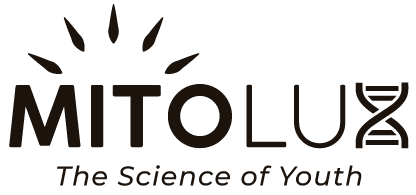Before diving into the ten crucial bodily functions, it’s important to understand how vitamin D impacts our enzymatic activities and gene expression. At its core, vitamin D is more than just a vitamin; it's also a prohormone. This means it plays a role in the synthesis and regulation of other hormones in the body.
When it comes to enzymatic reactions, vitamin D aids in the synthesis of enzymes and proteins crucial for maintaining calcium balance in the body. Moreover, vitamin D influences our genetic material. Through epigenetics – the study of how our behaviors and environment can cause changes in gene expression – vitamin D can turn genes on or off, impacting our overall health. [Frontiers in Physiology]
1. Calcium and Phosphorus Balance
The interplay between calcium and vitamin D is well-documented. Vitamin D facilitates the absorption of calcium and phosphorus from our gut, ensuring our bones and teeth remain strong. A deficiency can lead to weakened bones, resulting in conditions like osteoporosis and rickets. [Journal of Cellular Biochemistry]
2. Immune System Regulation
Vitamin D is an immune system modulator. It boosts the pathogen-fighting effects of monocytes and decreases inflammation. In essence, adequate vitamin D levels can help fend off infections and illnesses. [Journal of Investigative Medicine]
3. Mood and Brain Health
Mood disorders such as depression have been linked to low levels of vitamin D. The vitamin plays a role in regulating mood and warding off depression, making it crucial for brain health. [Journal of Clinical Endocrinology & Metabolism]
4. Supporting Diabetes Management
Emerging research suggests vitamin D might play a role in regulating insulin and the management of diabetes. [Diabetes Care Journal]
5. Cardiovascular Health
From heart disease to hypertension, vitamin D can play a role in preventing these conditions. It helps in managing blood pressure, inflammation, and other heart-related processes. [Journal of the American College of Cardiology]
6. Respiratory System Function
Vitamin D is essential for lung function. A deficiency can lead to respiratory complications and increase susceptibility to respiratory infections. [Thorax Journal]
7. Cellular Growth Regulation
Vitamin D plays a pivotal role in cellular growth modulation. It aids in cell differentiation, thus playing a protective role against the development of cancer. [The American Journal of Clinical Nutrition]
8. Fertility and Reproduction
Research has revealed vitamin D's role in fertility, especially in women. It is crucial for estrogen synthesis and the growth and development of the placenta during pregnancy. [European Journal of Endocrinology]
9. Neuromuscular System
Vitamin D is critical for nerve conduction and muscle function. A deficiency can lead to muscle weakness, pain, and fatigue. [Journal of the American Geriatrics Society]
10. Anti-inflammatory Properties
Chronic inflammation is linked to numerous health conditions. Vitamin D has natural anti-inflammatory properties, making it crucial for overall health. [The Journal of Immunology]
Conclusion: The Sunshine Vitamin’s Grand Encore
Given its vast influence on so many bodily functions, it's clear that vitamin D is not just another nutrient in our dietary repertoire. It's a master regulator, a pivotal piece in the intricate puzzle of our health. From the rhythm of our heartbeats to the pulsations of cellular growth, vitamin D conducts our bodily symphony with precision.
In the modern age, with indoor lifestyles and screen-centric routines, many are deprived of this elixir. Thus, it might be time to reconnect – to step out, bask in the sun, and let the melodies of health flow. So, next time you feel the sun's gentle caress on your skin, remember, it's not just warmth; it's wellness, longevity, and the promise of a healthier tomorrow.


